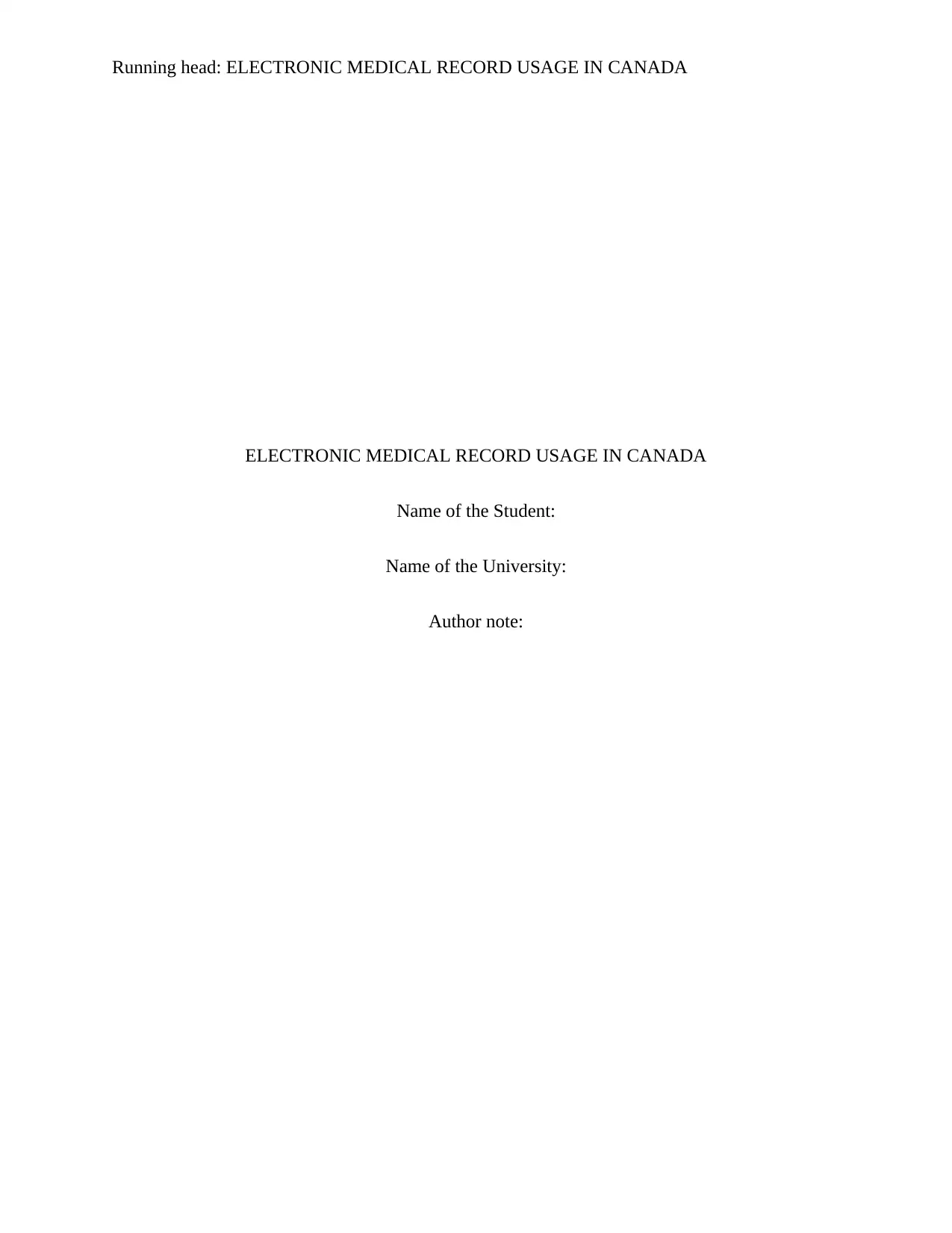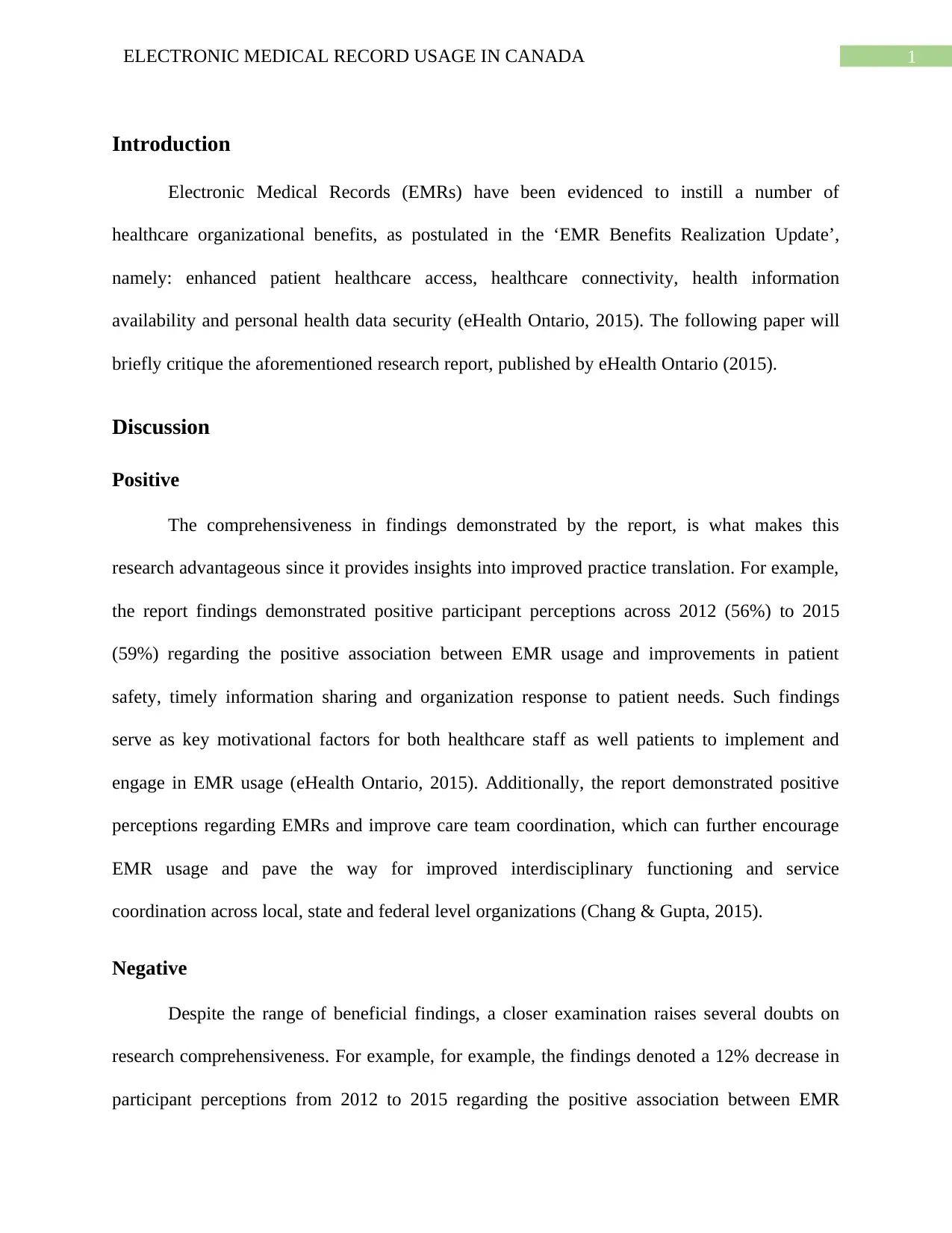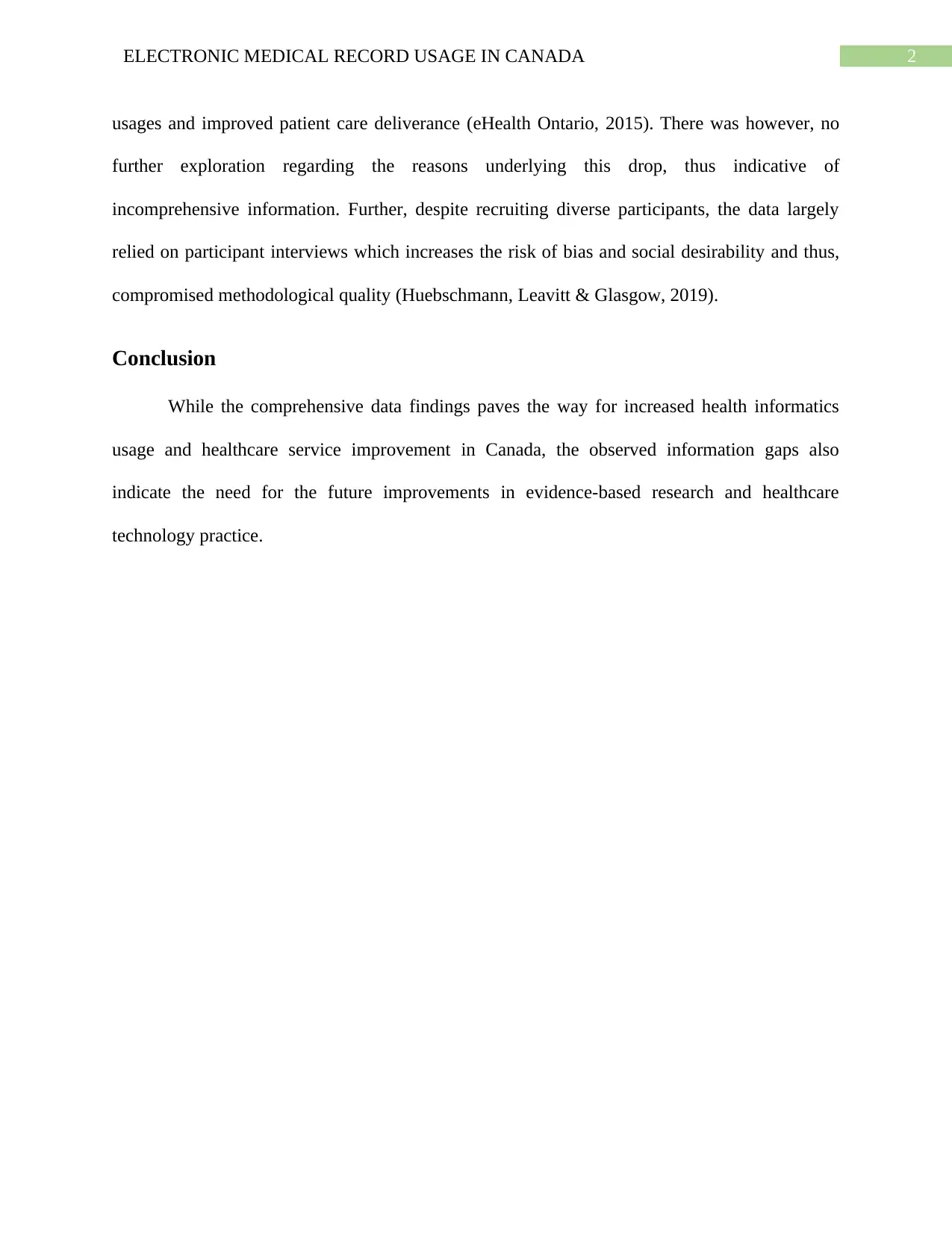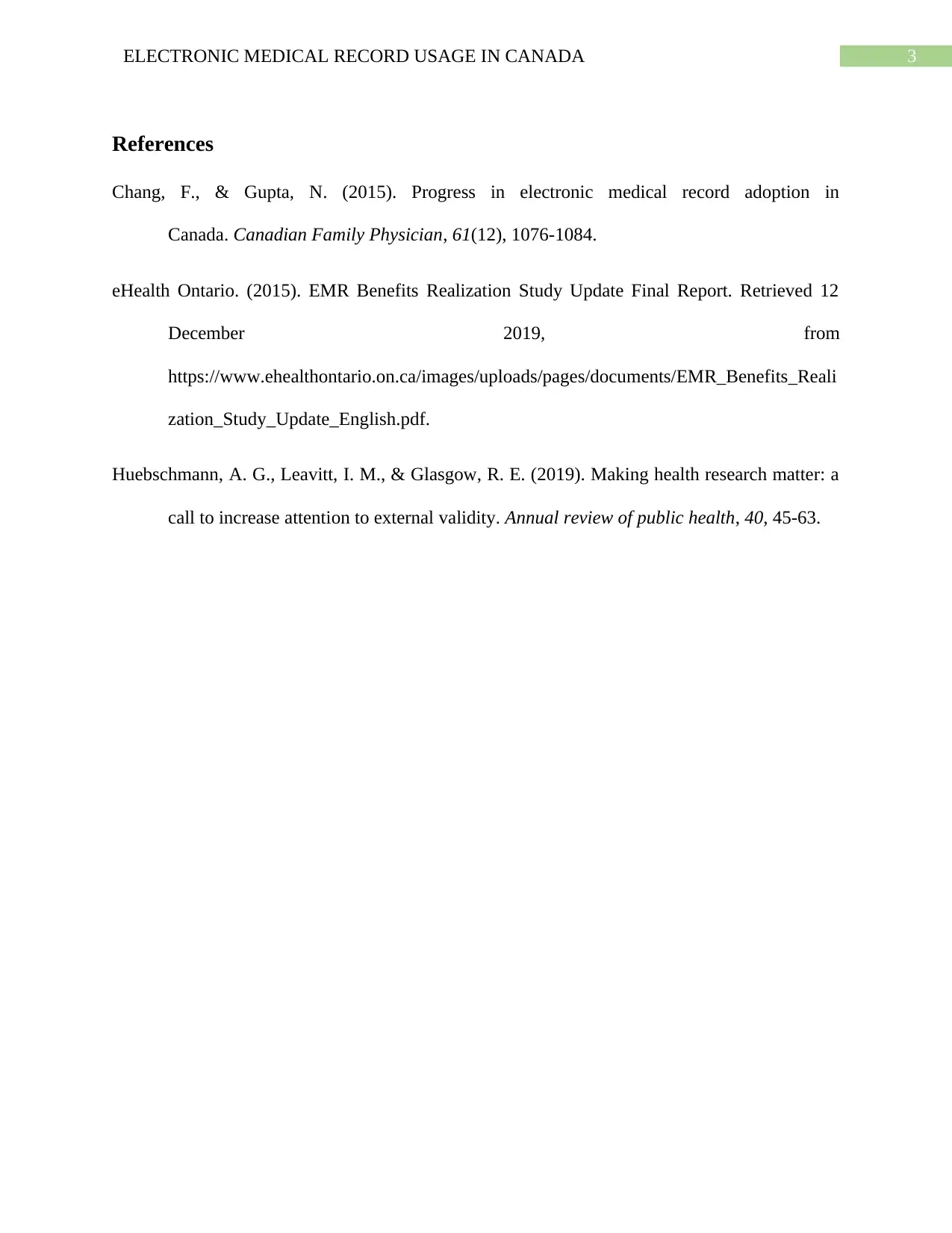Report: Electronic Medical Record (EMR) Usage in Canadian Healthcare
VerifiedAdded on 2022/09/10
|4
|520
|20
Report
AI Summary
This report critiques the research on Electronic Medical Records (EMRs) in Canada, focusing on a study by eHealth Ontario. The report highlights the benefits of EMRs, such as improved patient safety, timely information sharing, and better care coordination, as reported by eHealth Ontario. It also acknowledges the negative aspects, including a decrease in positive participant perceptions regarding EMRs and patient care deliverance from 2012 to 2015 and the reliance on participant interviews which introduces the risk of bias. The report concludes that while EMRs show promise for improving healthcare in Canada, future research needs to address information gaps and improve evidence-based practice. The report also mentions the importance of the connectivity strategy which supports the Action Plan for Health Care and defines the future of Ontario’s EHR as a “single, safe, standardized and proveincially interlarded record for every health care client in the province, with comprehensive, connected information, connected systems, and streamlined access”.
1 out of 4











![[object Object]](/_next/static/media/star-bottom.7253800d.svg)